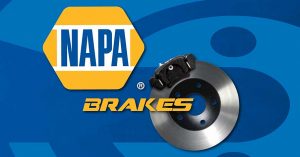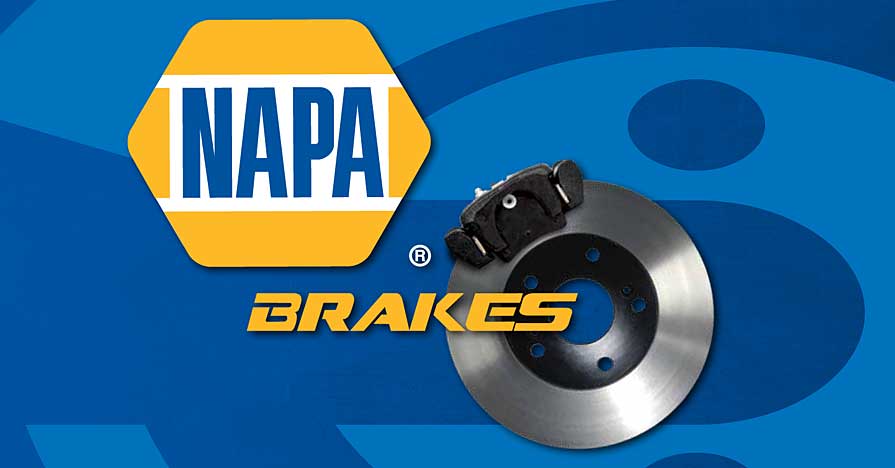Brake repair replacement Elizabeth Pa
A car that won’t start is an inconvenience, but a car that can’t stop is downright dangerous!
Don’t trust your Family’s safety to just any ‘discount’ brake job service. Your brake system is extremely important to stopping safely, and that’s why we only provide the best brake pads & rotors available from NAPA, installed by ASE certified Mechanics that know what they’re doing.
You might think a brake job from one shop is just as good as another, but here at Elizabeth Auto Care we perform every brake service a little different than most including the new car dealer. Experience has shown us that as your car ages with more miles, doing the same brake job as the factory original will give you fewer and fewer miles delivered due to system wear. That’s why we go much further than most, to restore your brake system to like new condition and often providing you with more miles on our brakes than you received from the factory original brake pad set.

Our no compromise attitude towards braking safety means we’ll clean and lubricate all slides, using up to 5 different types of lubrication on every brake service. You’ll always get the brake fluid flushed and provide expert bleeding services to ensure your expensive ABS system stays healthy. Every brake rotor and drum is carefully measured for proper thickness and either machined to expert tolerances or replaced if they won’t last you through the next set of brake pads.
It’s these many small but necessary steps that add up to a great brake job, and all too often we see neglected by the discount brake shops, including many new car dealers and chains. The result of not performing this brake service properly is usually noticed in excessive brake dust on your wheels, noise when applying your brakes, and reduced brake service intervals costing you more money later on. Trying to save a few dollars on arguably the most important service on your vehicle can often lead to additional inconvenience and expense that could have been avoided.
Your vehicle’s brake system is the result of over 100 years of technological advancements. Beginning with older mechanical systems that required a lot of effort to stop, that eventually morphed into the smooth and easy to apply computer controlled hydraulic brake systems we use today. While brake systems vary widely by year make and model, the typical system found on most family cars consists of disc brakes in front and either disk or drum brakes in back.
There’s basically 3 categories of components to consider when we inspect your brake system for normal wear or problems; hydraulics, friction material, and computer controlled electronics for your Anti Lock Brakes (ABS).
Brake Hydraulics Systems:
The Master Cylinder acts as the reservoir for the excess brake fluid and creates the hydraulic force needed to stop your car when you step on the brake pedal. Connected by a series of high pressure steel brake lines and rubber brake hoses, your master cylinder is the device that does most of the hard work. Supplying the force behind the hydraulic brake fluid when you step on the brake pedal to come to a stop. Think of your cars master cylinder like a pressure converter. When you press down on the brake pedal (physical pressure from your foot), the master cylinder converts this to hydraulic pressure, and brake fluid is responsible for transferring this force to each of your wheel’s brakes.
Brake Lines are typically made from steel, run from the master cylinder along the frame, and carry the high pressure hydraulic brake fluid to each wheel. Because of our harsh driving conditions in the Elizabeth Pa area including snow and salt, these lines will rust over time and need to be replaced before they become a safety hazard. If the brake lines are allowed to rust too much, they can rupture unexpectedly during a panic stop. This emergency situation can result in your brake pedal falling to the floor and you not being able to stop in time.
Rubber brake hoses connect the steel brake lines to each wheel, providing the flexibility needed when your car is going over bumps or rough terrain. They directly deliver pressurized brake fluid to the brake calipers or wheel cylinders. Since they’re made from rubber, they will harden over time and eventually develop cracks that can cause them to become dangerous under high pressure. But don’t worry, our highly skilled mechanics will check for any damage or cracks in your brake hoses every time your vehicle is on for a Pa. Safety Inspection or a brake check.
Disc brake calipers squeeze your brake pads onto the brake rotor to help you stop your car. Brake calipers come in many sizes, but they all have pistons and seals that convert hydraulic brake pressure into a squeezing motion that requires a friction material called brake pads. All modern automotive brake systems use brake calipers on the front wheels and most cars also use them on the rear as well.
Brake Rotors and every disc brake system uses disc brake rotors made out of steel to provide the needed drag when the brake pads are being squeezed by the calipers. Since they undergo intense heat and pressure, they can warp which causes the all too familiar pulsation feel when stepping on the brakes. Brake rotors are a wear item and need to be cut or machined and often replaced with every brake job as they slowly wear down below their minimum allowed thickness.
Wheel Cylinders: Instead of squeezing brake pads like a caliper does on disc brake system, some cars use wheel Cylinders on the back wheels in a drum brake system that convert this hydraulic pressure into a pushing motion. The wheel cylinders have two rubber-sealed pistons that convert the hydraulic pressure to push out on brake shoes so they can rub on the inside of the brake drum. This friction causes the vehicle to slow down when you step on the brake pedal.
A drum brake system isn’t as efficient as a disc brake set up, but since the rear brakes usually only supply about 20-30% of your cars braking it works just fine.
Cars with a drum brake system use a drum made of steel to provide the drag needed when the brake shoes are pushed out into them. Since they undergo intense heat and pressure, they can warp which causes the all too familiar pulsation feel when stepping on the brakes. Drums also wear out over time like rotors and need to be replaced or machined as necessary each time a rear brake repair job is performed.
Parking Brake System: Each time you park your vehicle, the emergency brake or parking brake system should be applied to hold your vehicle firmly in place. This helps to relieve the strain of your vehicles weight being placed on the park mechanism inside your transmission and could also prevent that park pin from getting sheared off in the event of a bump in a parking lot. Another advantage of always using your parking brake is to keep it exercised so that you’ll know whether or not it will work when you need it in an emergency.
Automotive Brake Friction Materials:
Disc Brake Pads: A disc brake pad has a steel backing plate with a wearable friction material either riveted or bonded to it. The friction material rubs against the brake rotor when the caliper squeezes them together. It’s this friction material that is always being reformulated to achieve the best braking efficiency while keeping the noise and dust levels tolerable. Although asbestos isn’t used as a friction material anymore, the three main types in use today are organic, semi-metallic, and ceramic brake pads.
Because NAPA ceramic brakes have several major advantages over the others, this is our preferred brake pad material at Elizabeth Auto Care. They typically last twice as long, our customers have fewer brake noise complaints, and produce a very light tan colored dust that doesn’t stick to your wheels like that annoying black dust from metallic brake pads.
Drum Brake Shoes – A drum brake system uses steel backed shoes with the wearable friction material either bonded or riveted to them to provide the stopping power your car vehicle needs. This system uses a series of return springs and other hardware that needs to be replaced with each brake shoe service.
ABS Brake Systems – Just about every car on the road today has some form of computer control tied into their braking system. Whether it’s for improved braking performance in wet, snowy, or icy conditions to traction control systems to help you go when you need to; your Anti Lock Brake System module and controller is always there to help you stay in control. You may feel a little pulsing or buzzing under your foot when applying the brakes as your wheel speed sensors detect some slippage under adverse weather conditions. This is normal, just keep your foot on the brakes and let your car do the braking. Your anti-lock brake system is capable of pumping the brakes many times faster than we can through the network of sensors and solenoids that make up your ABS brake system.
However, if your ABS light stays illuminated on the dash while driving, your ABS computer may be trying to tell you about a problem and should be checked by a certified mechanic specializing in brake repair like us.
Listed below are some common symptoms that may be related to a brake system problem:
- Car pulls to one side during braking
- Pulsating brake pedal or steering wheel shake while braking down hills
- Brake pedal feels mushy or softer than usual
- Any noise like a squeal, scrape, grind, or clicking sound when you step on the brake pedal
- Repeatedly adding brake fluid to the master cylinder
- Any brake fluid leaking from your car
- Unusual odor or noise
- ABS and/or brake light is illuminated while driving or braking
Your brake system is the most important safety item your vehicle can offer. So please stop in or call us right away if you experience any of the symptoms listed above. We’ll schedule you right away to have one of our expert, ASE certified, brake repair mechanics fully inspect your entire brake system and use NAPA parts. Remember, your family’s safety is our biggest concern, take one of our free loaner cars to drive while we inspect and service your brakes. Stay local – Trust the professionals at Elizabeth Auto Care for all your brake repair and maintenance in Elizabeth Pa.
Call, Text or Email us to schedule your brake repair appointment or ask any questions you may have about brake service in Elizabeth PA.
(412) 384-7700 Voice
(412) 879-0171 Text
[button type=”primary” link=”https://elizabethautocare.com/make-an-appointment”]SCHEDULE APPOINTMENT[/button]
Brake Repair Areas Served: Elizabeth Pa | Jefferson Hills Pa | Clairton Pa | McKeesport Pa | Forward Township Pa | Glassport Pa | Lincoln Boro Pa | Boston Pa | Finleyville Pa | West Mifflin Pa | Pleasant Hills Pa | Bethel Park Pa | South Hills Pittsburgh Pa and surrounding areas within these zip codes: 15037, 15025, 15135, 15132, 15131, 15045, 15332, 15236, 15122

